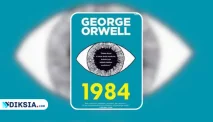Diksia.com - Book editors play a vital role in the publishing process. They are responsible for ensuring that a book is well-written, error-free, and meets the publisher’s standards. But beyond that, they also play a creative role in shaping the book’s final form.
A good book editor will work closely with the author to understand the book’s vision and to make suggestions that will improve the overall quality of the work. They may help to tighten the plot, develop the characters, or clarify the themes. They may also suggest changes to the structure, style, or tone of the book.
The best book editors are not just grammarians or proofreaders. They are also literary professionals who have a deep understanding of the craft of writing. They can help authors to bring their stories to life and to create works that will resonate with readers.
The Different Types of Book Editors
If you are an aspiring author, you might wonder what does a book editor do and why do you need one. A book editor is a professional who reviews the written word and looks for mistakes, inconsistencies, and ways to improve the style, voice, mechanics, and organization of the text.
A book editor can help you turn your manuscript into a polished and publishable work that will appeal to your target audience and meet the standards of the publishing industry. There are three main types of book editors: developmental editors, copy editors, and proofreaders.
- Developmental editors focus on the big-picture aspects of a book. They help authors to develop their ideas, to strengthen their characters, and to create a compelling narrative arc.
- Copy editors focus on the details of a book. They check for grammar, spelling, punctuation, and factual errors. They also make sure that the book’s style is consistent and that the tone is appropriate for the target audience.
- Proofreaders read the book carefully to catch any remaining errors. They also check the book’s formatting and make sure that it meets the publisher’s standards.
There are different types of book editors, each with a specific role and responsibility in the book editing process. Depending on your genre, style, and level of writing, you may need one or more types of editors to help you shape your literary masterpiece. Here are the main types of book editors and what they do:
Developmental Editor
A developmental editor works with the overall content and structure of your book. They look for plot holes, continuity problems, concept issues, and hiccups in the actual story. They also evaluate the characters, themes, tone, pace, and argument of your book.
A developmental editor can suggest new titles and headlines, develop stories and content ideas, and help you refine your vision and voice as an author.
A developmental editor is usually involved in the early stages of writing, before you have a complete draft. They can work with you from the outline stage or from a partial manuscript. They can also review your completed draft and give you feedback on how to improve it. A developmental editor can help you with:
- Clarifying your main idea and purpose
- Identifying your target audience and their expectations
- Organizing your chapters and sections
- Developing your plot, characters, setting, and conflict
- Enhancing your themes, tone, and style
- Strengthening your argument and evidence in non-fiction books
- Eliminating unnecessary or irrelevant content
- Adding missing or needed content
- Resolving any inconsistencies or contradictions
A developmental editor does not focus on grammar, spelling, punctuation, or formatting. They focus on the big picture and the overall quality of your book.
Copy Editor
A copy editor works with the language and mechanics of your book. They look for errors, inconsistencies, and weaknesses in grammar, spelling, punctuation, syntax, word choice, and sentence structure. They also check for factual accuracy, clarity, coherence, flow, and readability. A copy editor can suggest changes to improve the expression, precision, and elegance of your writing.
A copy editor is usually involved in the later stages of writing, after you have a complete draft that has been revised for content and structure. They can work with you from a single manuscript or from multiple versions that have been edited by other types of editors. A copy editor can help you with:
- Correcting any grammatical or typographical errors
- Ensuring consistency in spelling, capitalization, hyphenation, numbers, etc.
- Improving word choice and avoiding repetition or ambiguity
- Simplifying complex or convoluted sentences
- Rearranging or combining sentences for better flow
- Adding or deleting transitions for better coherence
- Checking for factual accuracy and citing sources if needed
- Applying a specific style guide or house style if required
- Formatting your manuscript according to industry standards
A copy editor does not focus on content, structure, or creativity. They focus on the details and the accuracy of your writing.
Proofreader
A proofreader works with the final version of your book before it goes to print or publication. They look for any remaining errors or inconsistencies that may have been missed by other types of editors or introduced during the formatting process. They also check for layout issues such as page numbers, headings, margins, spacing, alignment, etc. A proofreader can ensure that your book is error-free and ready for publication.
A proofreader is usually involved in the last stage of writing after you have a final draft that has been edited by other types of editors and formatted by a designer or publisher. They can work with you from a printed proof or from a digital file. A proofreader can help you with:
- Catching any spelling or punctuation errors
- Ensuring consistency in formatting and style
- Checking for any layout or design issues
- Marking any corrections using standard symbols or software tools
- Communicating any changes to you or the publisher
A proofreader does not focus on content, structure, or language. They focus on the final touches and the presentation of your book.
As you can see, each type of book editor has a different role and responsibility in the book editing process. Depending on your needs and budget, you may choose to hire one or more types of editors to help you shape your literary masterpiece.
A book editor is more than just a proofreader or a critic. A book editor is a partner who can help you improve your writing, refine your ideas, and polish your book. A book editor can help you achieve your goals as an author and create a book that you and your readers will love.
The Importance of Book Editing
Book editing is an essential part of the publishing process. A well-edited book is more likely to be successful with readers. It will be easier to read and understand, and it will be free of errors that could distract from the author’s message.
In addition, book editing can help to improve the quality of a book. A good editor can help an author to polish their writing and to make their book more powerful and engaging.
How to Become a Book Editor
There are a few different ways to become a book editor. Some people start out as editorial assistants and work their way up to editor positions. Others have a background in English or journalism and then go on to get an editing certificate or degree.
No matter what path you take, it is important to have a strong understanding of grammar, spelling, and punctuation. You should also be able to read critically and to identify areas where a book can be improved.
If you are interested in becoming a book editor, there are a few things you can do to prepare. First, read as much as you can. The more you read, the better you will understand the craft of writing. Second, take some editing classes or get an editing certificate. This will give you the skills you need to start editing professionally.
Finally, get involved in the publishing industry. Attend conferences, network with editors, and volunteer to edit for literary magazines or small presses. This will give you the experience you need to land a job as a book editor.






